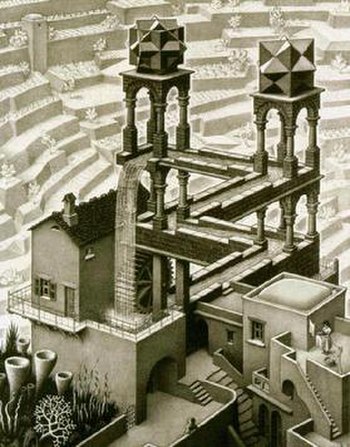
Hawkins / Willensfreiheit
Inhaltsverzeichnis: (verbergen)
|
Wirkliche Willensfreiheit ist dann gegeben, wenn man sich ganz dem Willen Gottes (BW 850) hingibt und damit kongruent ist. Die Gebetszeile
drückt die Wahrheit aus. Wird diese Aussage aufrichtig so empfunden, schwingt sie auf dem BW 850. Dort treffen sich der göttliche und der freie Wille des Betenden.
In den Selbsthilfegruppen der Anonymen Alkoholiker spricht man davon, dass es die angemessene Anwendung der Willensfreiheit ist, den eigenen Willen Gott zu übergeben. Es gilt anzuerkennen, dass es der göttliche Wille in Wirklichkeit der EINZIGE Wille ist. |

When we turn to Divinity, that's humility, that's surrender.
Persönliche Bekenntnisse
Appell
Schlussfolgerung
Einsichten
Horst Poller, Die Philosophen und ihre Kerngedanken, Ein geschichtlicher Überblick, S. 196-197, 2005
Siehe auch: Horst Poller, Die Philosophen und ihre Kerngedanken, Ein geschichtlicher Überblick, S. 196ff, 2005
Kategorischer Imperativ (grundlegendes Prinzip der Ethik
Nicht "die vielen Zellen entscheiden". Die Entscheidung ist ein Feldeffekt der vorhandenen Bewusstseinsebene.
|
Literaturzitate
><> • • • <><
Conclusion
There is half-a-second delay in conscious recognition of what is happening.
|
Englische Werke
Links zum Thema Willensfreiheit / Free willLiteratur
Literature (engl.)
Norretranders differentiates between the conscious "I" (mind) that has a short bandwidth of around 16 information bits per second and the non-conscious "Me" (subconscious) that has a bandwidth of 11 millions of information bits per second.
Externe Weblinks
External web links (engl.)
Audio- und Videolinks
Audio and video links (engl.)
The Heisenberg Uncertainty Principle proves that humans have free will. God does play dice.
|
Wiki-Ebene
Englisch Wiki